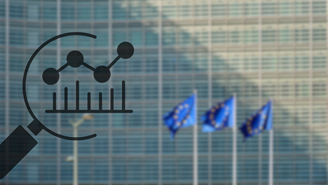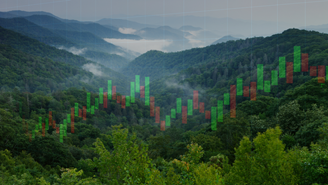All organizations have hidden vulnerabilities. Whistleblowing exposes fraud and other financial crimes, thereby giving society an opportunity to act against misbehaviour. Globally, whistleblowers have helped save lives, recover billions of dollars, and protect the environment and local communities.
Biochemist and former Vice President of Research and Development at Brown & Williamson, Jeffrey Wigand, disclosed tobacco tampering at the company, namely making cigarettes more addictive and adding cancer-causing flavour enhancers. The information proved useful in moving forward the USD 246 billion settlement agreement between the states’ attorneys general and the major tobacco companies in the US 1995.
In August 2018, an anonymous whistleblower was awarded more than USD 45 million from the Commodities and Futures Trading Commission after disclosing industry-wide manipulation of the ISDAFIX interest-rate benchmark, a key price-setting mechanism in the USD 544 trillion private derivatives market.
They are just two of the many who have contributed to the public interest, but because of their disclosures have been harassed, threatened or prosecuted. Until recently, in Europe there had been few consequences for those who retaliated against whistleblowers. But the landscape is changing and companies with poor whistleblowing polices potentially increase risk for their investors by a) missing the opportunity to identify costly misbehaviour taking place within their operations and b) exposing themselves to litigation.
Whistleblower Protections in Europe are Lacking
In late 2017, the European Commission moved forward with what is called “Horizontal or further sectorial EU action on whistleblower protection”, which is, in part, a future legal instrument aimed at providing comprehensive protection of whistleblowers at the EU level. The new law would, inter alia, force companies with an annual turnover of over €10 million or with more than 50 employees to set up an internal procedure to handle whistleblowers’ reports.
In the EU, 19 of 28 member states have put in place some legal protections for whistleblowers. However, in most countries, implementation suffers due to a range of issues, including the lack of a designated public authority to protect whistleblowers, incomplete information for citizens on whistleblower rights, legal gaps that employers can exploit to victimize whistleblowers, the necessity for victimized whistleblowers to seek relief in courts, and inconsistent court rulings in retaliation cases.
The EU has signed various agreements (e.g., UN Convention against Corruption, OECD Anti-Bribery Convention, and the European Criminal Law Convention on Corruption) to better protect whistleblowers from retaliation. But how well are member countries doing in providing effective protections for those who disclose wrongdoing at work, in line with its signed agreements? A 2018, EU-funded report looked at whistle-blower protection laws and how whistle-blower policies are enforced throughout Europe. It screened against nine key standards, including:
- specific whistle-blower protection provisions for employees in public and private sectors
- protection from all types of retaliation
- immunity from prosecution for disclosing sensitive information
- penalties for whistle-blower retaliation and other mistreatment
- appointment of a designated whistle-blower agency
France, Ireland, Malta and the UK were the only countries to score above 50%. European-focused investors with exposure to these countries could be better positioned since the protections in these countries should decrease the likelihood of misconduct staying hidden and potentially becoming existential threats for companies. Unfortunately, one-fourth of EU countries scored 0 points: the Czech Republic, Denmark, Estonia, Finland, Lithuania, Poland, and Spain. No countries comprehensively provide access to remedies and only eight countries have a public agency that oversees whistleblower issues.
Assessing Company Commitment
Companies which implement internal whistleblowing arrangements can mitigate reputational risk, economic damages and gain consumer and investor trust.
Investors with European exposure in countries where whistle-blower protection laws and whistle-blower policies are lacking may be interested in evaluating the internal whistleblowing arrangements of local companies. Our ESG Risk Rating framework assesses whistleblowing programs across a selection of criteria, including:
- whether the policy is available to suppliers, customers and other third parties
- whether an independent, 24-hour, reporting hotline is available
- whether the possibility for anonymous reporting is available and whether reports are treated confidentially
For investors
EU-level whistleblowing legislation is coming. However, the standards by which EU companies design and manage their whistleblowing arrangements varies widely, if they have an arrangement at all. Hidden vulnerabilities do not stay hidden for very long. For investors, the pressure to identify those companies which provide comfort and no fear of retaliation for those who speak up will undoubtedly increase in the coming years.
Sustainalytics can help investors understand what makes a good whistleblowing policy as well as explore their exposure to companies with deficient arrangements. Get in Touch with one of our advisers or visit our ESG Rating page to learn more about our approach.




